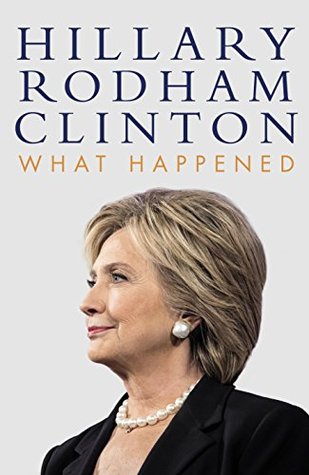More on this book
Community
Kindle Notes & Highlights
I know some people don’t want to hear about these things, especially from me. But we have to get this right. The lessons we draw from 2016 could help determine whether we can heal our democracy and protect it in the future, and whether we as citizens can begin to bridge our divides.
Listening to Trump, it almost felt like there was no such thing as truth anymore. It still feels that way.
Too many saw the world in zero-sum terms, believing that gains made by fellow Americans they viewed as “other”—people of color, immigrants, women, LGBT people, Muslims—were not earned and must be coming at someone’s expense.
I was running a traditional presidential campaign with carefully thought-out policies and painstakingly built coalitions, while Trump was running a reality TV show that expertly and relentlessly stoked Americans’ anger and resentment.
The few times I’ve gone out in public without makeup, it’s made the news.
As I tucked into my ice cream, an English reporter who was part of the traveling press corps that day shouted, “How many calories are in that?”
I’ve made mistakes, been defensive about them, stubbornly resisted apologizing. But so have most men in politics. (In fact, one of them just became President with a strategy of “never apologize when you’re wrong, just attack harder.”)
I can’t count the number of times that good-hearted men who should know better dismiss the notion that sexism and outright misogyny are still potent forces in our national life.
They deserve better than the toxic masculinity Trump embodies. Well, he’s in their heads now. His voice resounds far and wide. Now it’s on all of us to make sure his ugly words don’t damage our girls—and boys—forever.
“As people of color, we feel the greatest impact of this injustice, of this inhumane treatment,” Gwen Carr said. “Some people say that we’re racist because we say ‘Black lives matter.’ We know that all lives matter, but we need people to understand that black lives matter also.
We found that, under current law, if a background check is not completed after three days, a store is free to sell a gun with no questions asked.
Making the perfect the enemy of the good is shortsighted and counterproductive. And when someone on the left starts talking about how there’s no difference between the two parties or that electing a right-wing Republican might somehow hasten “the revolution,” it’s just unfathomably wrong.
In 2008, the major networks’ nightly newscasts spent a total of 220 minutes on policy. In 2012, it was 114 minutes. In 2016, it was just 32 minutes. (That stat is from two weeks before the election, but it didn’t change much in the final stretch.)
I’ve always believed that it’s dangerous to make big promises if you have no idea how you’re going to keep them. When you don’t deliver, it will make people even more cynical about government.
Trump encouraged a zero-sum view of life where if someone else is gaining, you must be losing.
In fact, roughly two-thirds of all minimum-wage jobs in America are held by women.
Trump defended Putin’s alleged murder of journalists. “At least he’s a leader, unlike what we have in this country,” Trump said.
Of the 61 percent of all voters who said he was unqualified, 17 percent still voted for him. Of the 63 percent who said he didn’t have the right temperament, 19 percent voted for him. The exit polls found that 18 percent of all voters viewed both me and Trump negatively, but they went for him 47 percent to 30 percent.
Data from the gold standard American National Election Studies also showed that resentment toward these groups was a better predictor of Trump support than economic concerns. And as I previously mentioned, exit polls found that Trump’s victory depended on voters whose top concerns were immigration and terrorism, despite his lack of any national security experience and my long record. That’s a polite way of saying many of these voters were worried about people of color—especially blacks, Mexicans, and Muslims—threatening their way of life. They believed that the political, economic, and
...more
Studies have found that out of the more than a billion votes cast in the United States between 2000 and 2014, there were just 31 credible cases of voter impersonation.
a sixty-six-year old woman with chronic lung disease who lost her driver’s license just before Election Day. She provided Social Security and Medicare cards and a government-issued bus pass with a photo, but her vote was still not counted.


